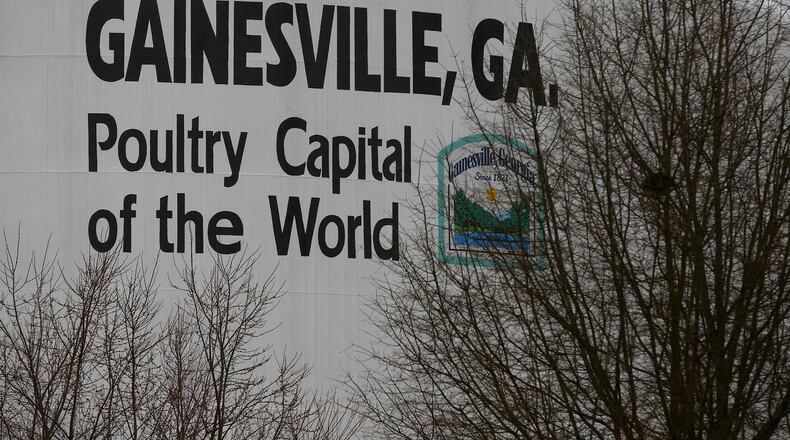Georgia’s top Republican officials heaped praise onto the new U.S.-Mexico-Canada trade agreement struck by President Donald Trump and House Speaker Nancy Pelosi on Tuesday.
Gov. Brian Kemp said the three-nation trade deal would “spur job creation, create new opportunities for our farmers, and ensure a bright and promising future for hardworking Americans in every corner of this great nation.”
Canada and Mexico are now respectively Georgia’s No. 3 and 4 trading partners, according to the Department of Economic Development, and the state’s top two export markets. Georgia exported roughly $10.2 billion worth of goods to its two neighbors in 2018.
Details about the new agreement were scant on Tuesday, but U.S. Sen. David Perdue estimated the pact would increase U.S. GDP by roughly $68 billion, create nearly 180,000 new jobs and bolster the country’s negotiating position as it revisits its trade relationship with China.
If approved by both chambers of Congress, the USMCA would replace the North American Free Trade Agreement, the free trade deal that has remade major swaths of Georgia's economy over the last quarter-century.
Many from the state’s powerful agriculture sector said the deal could open new market access opportunities for American poultry in Canada.
But at least one group of Georgians appeared displeased by the final agreement: fruit and vegetable growers. Those farmers were looking for new protections to help them fight back against cheap Mexican imports - a request that was ultimately omitted.
“I remain concerned about unbridled access to our markets for Mexican fruits and vegetables,” said Agriculture Commissioner Gary Black. “I am optimistic that enhanced federal monitoring of trade practices and food safety will mitigate some of these concerns.”
Some of the state’s most liberal lawmakers who opposed past trade deals expressed optimism about the new agreement even as some members of their party urged them to deny Trump a major policy victory.
U.S. Rep. Hank Johnson, D-Lithonia, voted against several trade initiatives negotiated by the Obama administration but said he would support the USMCA because of its “impact on workers and consumers.”
“Although the agreement is not perfect, it is far superior to NAFTA, and to the agreement President Trump proposed” in late 2018, said Johnson. “The enforcement mechanisms have teeth, and ensure protections for workers in all three countries.”
Marietta Democrat Lucy McBath, the newest and most politically vulnerable member of Georgia’s congressional delegation, enthusiastically backed the deal on Tuesday.
A spokesman for the Georgia Ports Authority said increased North American trade will “create opportunities throughout the supply chain, including the potential for new shipping services between the countries.”
About the Author
Keep Reading
The Latest
Featured



